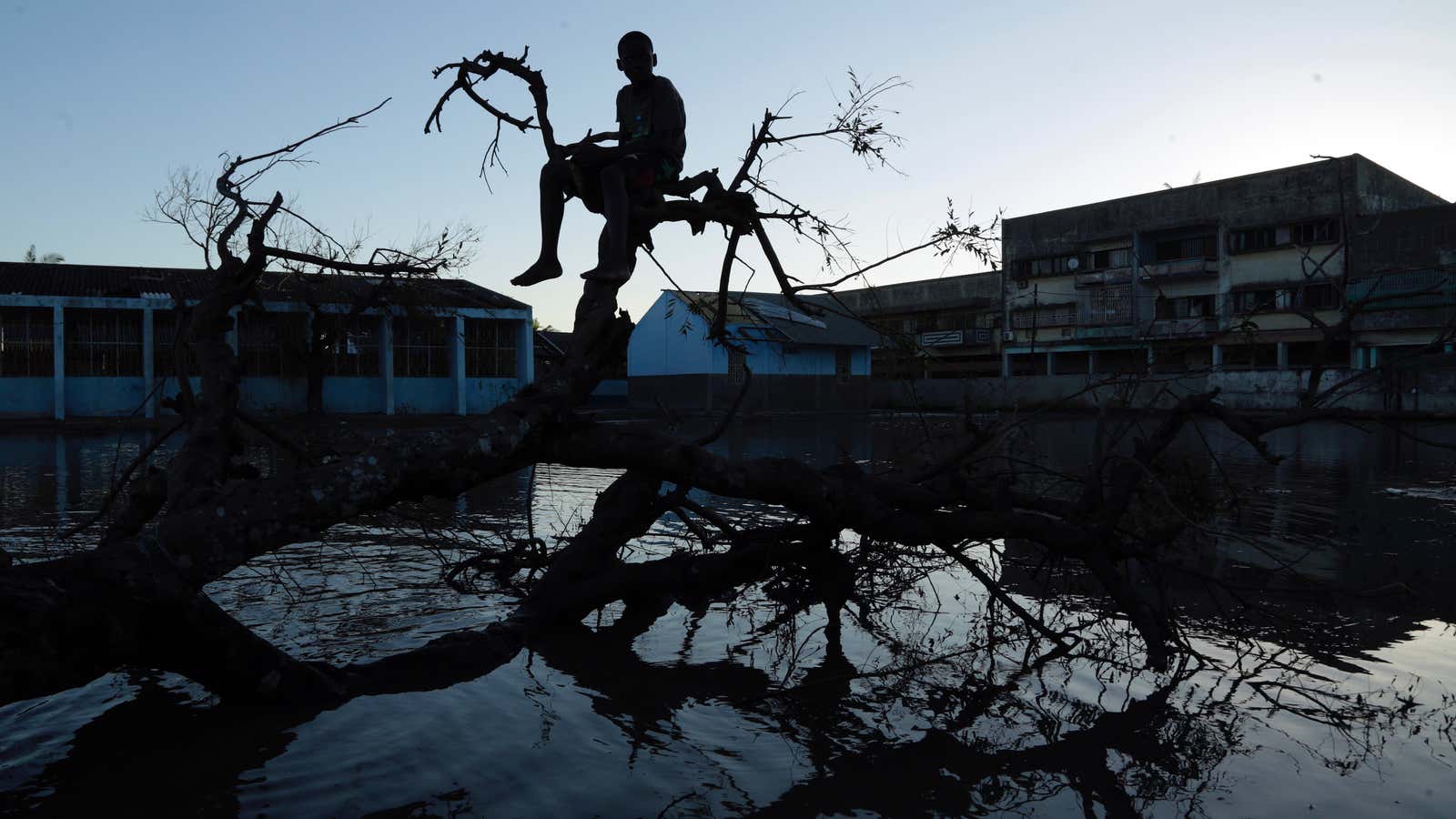The effects of Cyclone Idai will last for years, especially in Beira, the Mozambican city hardest hit by the storm that left more than 750 people dead.
The damage to infrastructure in the countries affected by Cyclone Idai—Mozambique, Zimbabwe and Malawi—has led to a loss of more than $1 billion, according to the Economic Commission for Africa. Beira, one of Mozambique’s largest cities, was the epicenter of the disaster.
The Port of Beira is a strategic port on the eastern coastline, connecting landlocked Zambia, Zimbabwe and Malawi to the Indian Ocean. Portuguese colonialists early recognized the importance of Beira’s location, on the Mozambican Channel and between the mouths of the Pungwe and Buzi rivers. Founded in 1891 as the headquarters of the Companhia de Moçambique, Beira quickly became a business terminus. A railway line between Cape Town and Beira was opened in 1903.
Beira buildings
After more than two decades of war ravaged the north of the country, peace brought Mozambicans to the city with the population nearly doubling between 1997 and 2019. Today, Beira is Mozambique’s fourth largest city, particularly with important energy infrastructure investments, with natural gas deposits discovered off Mozambique’s coastline. The port itself sustained limited damage, but the city around it has been devastated, with 90% of the infrastructure destroyed. The nearby town of Buzi was also submerged.
“We probably have lost about a billion dollars in Mozambique, Zimbabwe, Madagascar and Malawi in terms of resources, in particular the Beira port, the signature port of Mozambique, is essentially today almost a thing of the past because of Cyclone Idai,” Vera Songwe, the UN’s Economic Commission for Africa’s executive secretary, said this week.
The Airport
The scale of Beira’s devastation demonstrates the vulnerability of cities experiencing rapid urbanization without the proper planning. Rising sea levels and climate change contributed to this vulnerability, warned the UN’s Office for Disaster Risk Reduction.
Central Hospital
“It is particularly distressing that severe damage has been done to schools, hospitals, health facilities and other key infrastructure as this will have consequences not just for the emergency response phase but for the long-term efforts of these countries to eradicate poverty and hunger,” said Mami Mizutori of the UN’s Office for Disaster Risk Reduction.
With hundreds of people still missing, there has been no time to estimate the cost of rebuilding Beira, but it will take years.
Sign up to the Quartz Africa Weekly Brief here for news and analysis on African business, tech and innovation in your inbox
